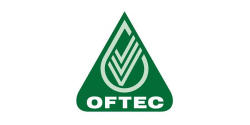

OFTEC, which represents the domestic oil heating and cooking industry in Northern Ireland, welcomed the new carbon monoxide (CO) legislation that came into effect on 31 October requiring new properties to be fitted with a CO alarm.
But the industry association warned that it doesn’t go far enough, with many householders still at risk from the potentially deadly substance, particularly those with older and poorly maintained heating systems.
David Blevings, OFTEC Ireland manager said: “While this is certainly a positive step forward in acknowledging the dangers of CO and the importance of fitting a CO alarm in a new property, we believe there is potential for a much greater risk within existing properties which may have old and poorly maintained boilers.”
“We also agree with the Health and Safety Executive of Northern Ireland that a CO alarm is a secondary measure only. An alarm, while important, can give a false sense of security and the best protection is to have appliances serviced regularly by a qualified technician.”
OFTEC works with a range of industry stakeholders to promote CO awareness in Northern Ireland. A highlight of this year’s campaign is that anyone who uses an appliance that burns any fossil fuel whether it is oil, coal, peat, wood or gas should take appropriate action.
David Blevings added: “Almost 70% of all existing homes in Northern Ireland use heating oil as their primary heating source. These householders should always use an OFTEC Registered Technician when having their appliances serviced. These highly trained technicians use a flue gas analyser to check for carbon monoxide emissions and will perform a combustion test that can lead to improvements in energy efficiency and cost savings on energy bills.”
OFTEC is also calling on the Northern Ireland Executive to introduce a mandatory registration scheme for oil technicians similar to the Gas Safe Register, which is in place for natural gas appliances. A mandatory scheme would serve as an additional safety measure for householders, ensuring all technicians, across all fossil fuels, are suitably trained and qualified to detect carbon monoxide and provide competent servicing and installation works.
If you'd like to keep up-to-date with the latest developments in the heating and plumbing industry, why not subscribe to our weekly newsletters? Just click the button below and you can ensure all the latest industry news and new product information lands in your inbox every week.